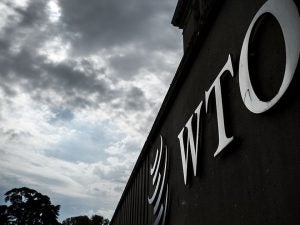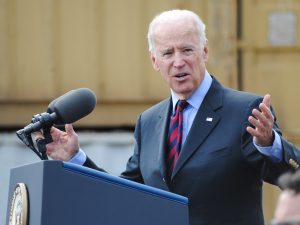IIEL Blog
The IIEL blog provides short-form analyses from IIEL fellows, IIEL staff, and outside experts on important issues in international economic law. Established in early 2021, the blog embraces our commitment to interdisciplinary, nonpartisan analysis to “Innovate, Engage, and Lead”.

Policy Brief: Echoes of the Past: The Impact of Japanese Colonialism on Commercial Diplomacy in East Asia
July 8, 2024 by Zainab Ahmed
The relationship between Japan and South Korea has long been rife with conflict dating back decades to Japan's occupation of the Korean peninsula and war crime atrocities. Despite diplomatic relations being established in 1965, the South Korea government, civic groups, victims, and citizens continued to push for restitution, leading to tense relations between Japan and South Korea that escalated into a trade dispute in July of 2019, where economic and security concerns were weaponized to address unresolved historical grievances between the two countries.
This policy brief surrounds a case study of the 2019 Japan-South Korea Trade Dispute and the question of how war memory impacted semiconductor supply chains, exploring how the emerging and escalating diplomatic challenges surrounding Japan’s colonial rule in Korea led to the 2019 trade dispute.

Policy Brief: World Trade Organization Monitoring Function at a Global Trade Turning Point: Expectation for the 2024 China Trade Policy Review
June 12, 2024 by Sae Kobayashi
As the international trading system is at a turning point, this article emphasizes the increasing significance of the monitoring function of the WTO, with a particular focus on the Trade Policy Review of China. The TPR serves as a valuable tool in empowering the multilateral trading system to effectively tackle contemporary challenges and fulfill global expectations.

Policy Brief: E-Commerce Negotiations at the WTO: Lessons from Multilateral and Regional Trade Agreements for an Inclusive Digital Trade
July 20, 2023 by Milad A. Said Barguil
Digital trade has acquired great importance in the last two decades, especially after the Covid-19 pandemic. Many international organizations are addressing this issue and governments are making efforts to overcome the challenges and reap the benefits of the digital economy. The World Trade Organization is not the exception. In 1998 the WTO Work Programme on Electronic Commerce was launched “to examine all trade-related issues relating to global electronic commerce”. However, it was not until 2019 that negotiations on an agreement on e-commerce formally started. Despite the increasing importance of digital trade in the global economy, the digital divide between developed and developing countries is substantial. Without the right measures “the digital divide will become the new face of inequality”. That is why the WTO must address the digital divide as an important part of the negotiations and build on previous multilateral and regional experiences. This issue brief analyzes the results of previous multilateral WTO agreements that contain obligations to assist Least-Developed Countries, and the approach adopted in Regional Trade Agreements that would be useful to bridge the digital divide.

Policy Brief: Sovereign Debt Law and Containing Contagion: Reflections on the Great Financial and Eurozone Crises
July 10, 2023 by Jay Rappaport
Last year, as bond yields widen between Eurozone countries, many commentators speculated that a second Eurozone Crisis was afoot. This policy brief analyzes the original Eurozone Crisis of the early 2010’s and its twin crisis, the Great Financial Crisis, and it seeks to illuminate lessons learned from how the official sector—governments and international organizations—responded to those crises.

Should the WTO recognize legal precedent? The Walker Principles and Beyond
February 2, 2023 by Michiru Ishihara
International dispute settlement bodies generally do not recognize stare decisis. At the World Trade Organization (WTO), the Understanding on Rules and Procedures Governing the Settlement of Disputes (DSU) is silent on precedent. However, in practice, the WTO Appellate Body has criticized panels for not following its prior findings. The U.S. has criticized the Appellate Body’s position over precedent, contributing to its rationale for the blockage of any process to appoint the needed Appellate Body members, and subsequently halting the entire activity of the Appellate Body. The Appellate Body has provided predictability to the international trading system. The WTO should continue its current practice of recognizing some form of legal precedent informally, while addressing the U.S.’s concerns. The Walker Principles and the relevant proposal at the DSB by Japan, Australia and Chile would be a good starting point to bridge the gap, and subsequently solve the current Appellate Body crisis. The U.S.’s concerns extend beyond the issue of precedent, but fixing this issue would be a good start to restoring a functioning Appellate Body.

Policy Brief: New Directions for Brazil's Foreign Policy Ambitions
November 28, 2022 by Mariana Negreiros Mariano and Jacob Shively
In a remarkable turn, Brazil’s former two-term president, Luis Inácio Lula da Silva—known universally as Lula—won Brazil’s 2022 presidential election. Will he also return his prior ambitions to refashion Brazil as an internationalist rising power? The election itself was razor-thin, with the final votes for each candidate separated by less than two percentage points. Whereas Lula is a leftist who espoused relatively moderate policies in office, his opponent, Jair Bolsonaro, is a classic nationalist who expressly modeled much of his approach after former US president Donald Trump. Our research suggests that both presidents’ grand strategy visions were constrained by existing commitments and larger realities. Looking forward, these findings suggest that Lula may once again work to reorient Brazil away from Bolsonaro’s nationalism; however, Lula’s ambitions are likely to be moderated based on lessons learned in prior administrations and the national inertia that channels all grand strategy ambitions.

Environmental, Social & Governance Factors Come to America
January 15, 2021 by Jacob Eigner
As European regulators turn their attention towards encouraging sustainable investing and consumers flock into ESG-themed funds, the world seems to be following suit. These grand trends toward ESG investing underscore the outsized regulatory influence and normative power of the EU. Although America under the Trump administration has thus far been an outlier, the incoming administration is likely to take aggressive action to keep pace with Europe and the world by releasing regulatory guidance encouraging investment in ESG-themed and socially responsible funds.

Policy Brief: How Digitizing the Dollar Can Help Keep the US Reserve Currency Status
March 1, 2021 by Jacob Eigner
Thirty years after the end of the gold standard, the USD is still by far the most commonly held reserve currency and is considered the lingua franca of global trade. This status quo is immensely favorable to the U.S. but at risk of weakening due to technological friction. This brief examines the mixed blessing of reserve currency status and explains how a transition to a digital currency could reverse downward pressures on global USD use and ownership.

How Biden’s Personnel Choices will Impact Trade Policy
March 3, 2021 by Jay Rappaport
Under President Joe Biden, U.S. trade policy will change greatly, although not immediately. Even if President Biden does not materially address trade policy until after the Covid-19 pandemic subsides, his remarks and nominees for international economic positions suggest what changes to U.S. trade policy he will make during the rest of his term. This blog post analyzed three key areas through the lens of President Biden's personnel and policy choices to date.
